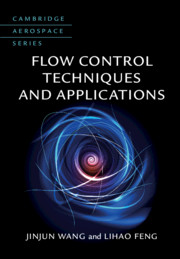Book contents
- Flow Control Techniques and Applications
- Cambridge Aerospace Series
- Flow Control Techniques and Applications
- Copyright page
- Contents
- Preface
- 1 Introduction
- 2 Gurney Flap
- 3 Vortex Generator
- 4 Roughness
- 5 Polymer
- 6 Biological Techniques
- 7 Jet
- 8 Synthetic Jet
- 9 Plasma Actuator
- 10 Lorentz Force
- 11 Closed-Loop Control
- Index
- References
3 - Vortex Generator
Published online by Cambridge University Press: 14 December 2018
- Flow Control Techniques and Applications
- Cambridge Aerospace Series
- Flow Control Techniques and Applications
- Copyright page
- Contents
- Preface
- 1 Introduction
- 2 Gurney Flap
- 3 Vortex Generator
- 4 Roughness
- 5 Polymer
- 6 Biological Techniques
- 7 Jet
- 8 Synthetic Jet
- 9 Plasma Actuator
- 10 Lorentz Force
- 11 Closed-Loop Control
- Index
- References
Summary
- Type
- Chapter
- Information
- Flow Control Techniques and Applications , pp. 48 - 64Publisher: Cambridge University PressPrint publication year: 2018

